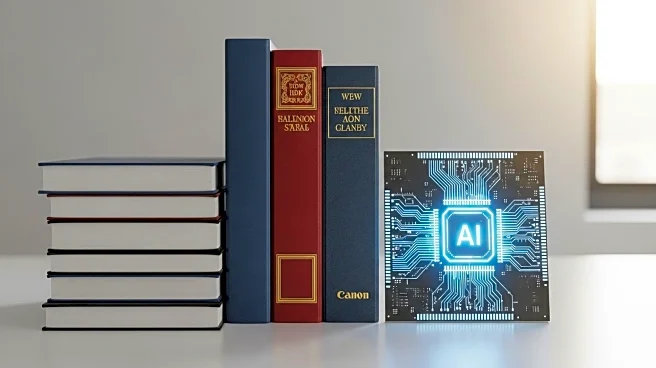What is the story about?
What's Happening?
The integration of artificial intelligence in the legal field is prompting a reevaluation of how law schools train future lawyers. The traditional Socratic method, which emphasizes critical thinking and oral examination, is being overshadowed by AI's capabilities. Educators like Clay Shirky argue for a return to in-class assessments to ensure students develop essential skills. The challenge lies in balancing AI's benefits with the need for hands-on training that fosters deep understanding and problem-solving abilities.
Why It's Important?
As AI continues to transform the legal profession, law schools must adapt their teaching methods to prepare students for a future where AI plays a significant role. This shift is crucial to maintaining the profession's integrity and ensuring that new lawyers possess the skills necessary to navigate complex legal landscapes. The emphasis on real-time assessments and critical thinking is vital for developing lawyers who can effectively use AI as a tool rather than a crutch. The outcome of this educational evolution will impact the quality of legal services and the profession's ability to adapt to technological advancements.
What's Next?
Law schools may need to invest in training programs that emphasize mentorship and practical experience, ensuring that graduates are well-equipped to handle AI-driven changes in the legal field. This could involve revising curricula to include more interactive and problem-based learning approaches. Additionally, law firms might need to enhance their training programs to bridge the gap between academic learning and practical application, fostering a new generation of lawyers who can thrive in an AI-enhanced environment.
















